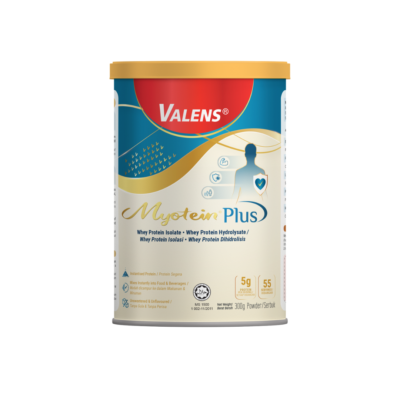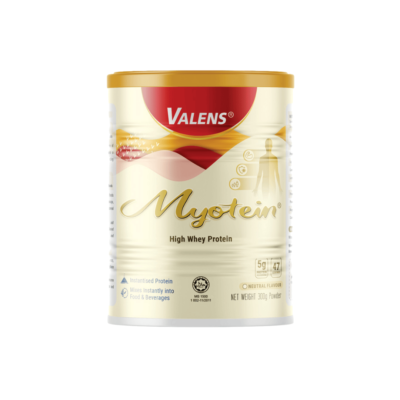Cancer is a life-changing disease that can be both physically and emotionally challenging, which requires support from various aspects, from medical treatments, counselling and support groups, to specific diets and nutrition. While cancer treatments have advanced significantly in recent years, they can still take a toll on the body.
This is why cancer patients often require a special diet customised for their changing needs and to manage symptoms like nausea, vomiting, and fatigue, while also promoting healing, recovery and strength.
While nutritional supplements like vitamins, minerals and certain herbal extracts are often being prescribed or used, one very important nutrient cancer patients should never overlook is Protein.
Why Protein is Essential to Cancer Patients
Even for healthy individuals, an adequate intake of protein is essential for sustaining good health every day. Commonly known as the “Building Blocks of Life” for healing and recovery, amino acids are constantly required to renew and repair our body cells and tissues, regulate various metabolic functions in our body, as well as supporting our immune system by creating white blood cells, antibodies and antioxidants [1].
According to the MRNI (Recommended Nutrient Intake of Malaysia), a healthy adult should ideally get 1 gram of protein for every kilogram of their body weight each day.
This means if you weigh 50KG, you should be getting 50 grams of protein every day, or at least 80% of it.

Cancer patients often require a much higher protein intake than an average, healthy person because they go through various treatments such as chemotherapy or radiation therapy, which can take a toll on healthy cells in addition to cancer cells. Consuming sufficient protein can aid in the repair and regeneration of cells and tissues, and mitigate the damage caused by the treatment [2].
Additionally, cancer patients may have higher energy needs due to the metabolic demands of cancer growth and treatment. Protein can provide the necessary energy to fuel the body’s functions, especially during times of stress [4].
How Protein Supplements can Benefit Cancer Patients
While a healthy, balanced diet that includes protein-rich foods such as meat, fish, poultry, eggs, dairy products, legumes, nuts, and seeds is the best way for cancer patients to meet their protein needs, protein supplements can be a convenient and effective way to increase protein intake.
Protein supplements can also be particularly helpful for cancer patients who have eating difficulties (e.g. due to nausea) or a loss of appetite. They can also be beneficial for patients who experience digestive issues.
Bioactive Whey Protein Supplement
This is where high quality protein supplements like Myotein High Whey Protein can come in handy.
Myotein High Whey Protein is a product from Valens Nutrition, a range of medical nutrition products which has been widely used by healthcare professionals and institutions.

Myotein High Whey Protein: A bioactive whey protein supplement by Valens Nutrition for various dietary therapeutic purposes.
Imported from New Zealand, Myotein High Whey Protein is a bioactive whey protein concentrate freshly derived from cow’s milk. It is 100% pure fresh whey, free from flavouring, preservatives, added sugar or carbs. Whey protein is also a good source of complete protein, and suitable for vegetarians.
Designed to complement one’s preferred diet and not to replace it, Myotein is free from flavouring. This means it can be added into almost any kind of beverage of choice such as coffee, tea, cocoa, milk, smoothies, oats, cereals and so on without altering the taste.
For cancer patients who consume meal replacement or nutrition drinks, Myotein can be incorporated easily into the beverage of choice without altering the texture or taste to increase protein intake more easily.

Boosting nutritional drinks or food for cancer patients with a protein supplement is quite a common practice among dietitians and healthcare providers.
Consult with a Healthcare Provider for the Right Diet and Nutrition
More often than not, cancer patients suffer not only from the disease itself, but also from severe malnutrition, weakness, and a deteriorating quality of life.
While protein supplements can come in handy, it is essential for cancer patients to work with a registered dietitian or healthcare provider to develop an individualised nutrition plan that meets the patient’s unique needs.
It is also important to note that protein supplements should not be used as a substitute for whole foods. Before starting on any supplements, it is strongly recommended to check with a healthcare provider.
For more information on Myotein High Whey Protein, visit their website here: https://myotein.valensnutrition.com/
This article is written for Valens Nutrition by Ms Melissa Lee EY, a practising dietitian of MDA (Malaysian Dietitian Association).
References :
- Guoyao Wu. Food Funct 2016, Vol 16. Dietary protein intake and human health.
- Ravasco P. Nutrition in Cancer Patients. J Clin Med. 2019 Aug 14;8(8):1211. doi: 10.3390/jcm8081211. PMID: 31416154; PMCID: PMC6723589.
- Aoyagi T, Terracina KP, Raza A, Matsubara H, Takabe K. Cancer cachexia, mechanism and treatment. World J Gastrointest Oncol. 2015 Apr 15;7(4):17-29. doi: 10.4251/wjgo.v7.i4.17. PMID: 25897346; PMCID: PMC4398892.
- Bulmuş Tüccar T, Acar Tek N. Determining the factors affecting energy metabolism and energy requirement in cancer patients. J Res Med Sci. 2021 Dec 22;26:124. doi: 10.4103/jrms.JRMS_844_20. PMID: 35126587; PMCID: PMC8772515.
Disclaimer: This Website Does Not Provide Medical Advice
The information, including but not limited to, text, graphics, images and other material contained on this website are for informational purposes only. No material on this site is intended to be a substitute for professional medical advice, diagnosis or treatment. Always seek the advice of your physician or other qualified healthcare providers with any questions you may have regarding a medical condition or treatment and before undertaking a new health care regimen, and never disregard professional medical advice or delay in seeking it because of something you have read on this website.









